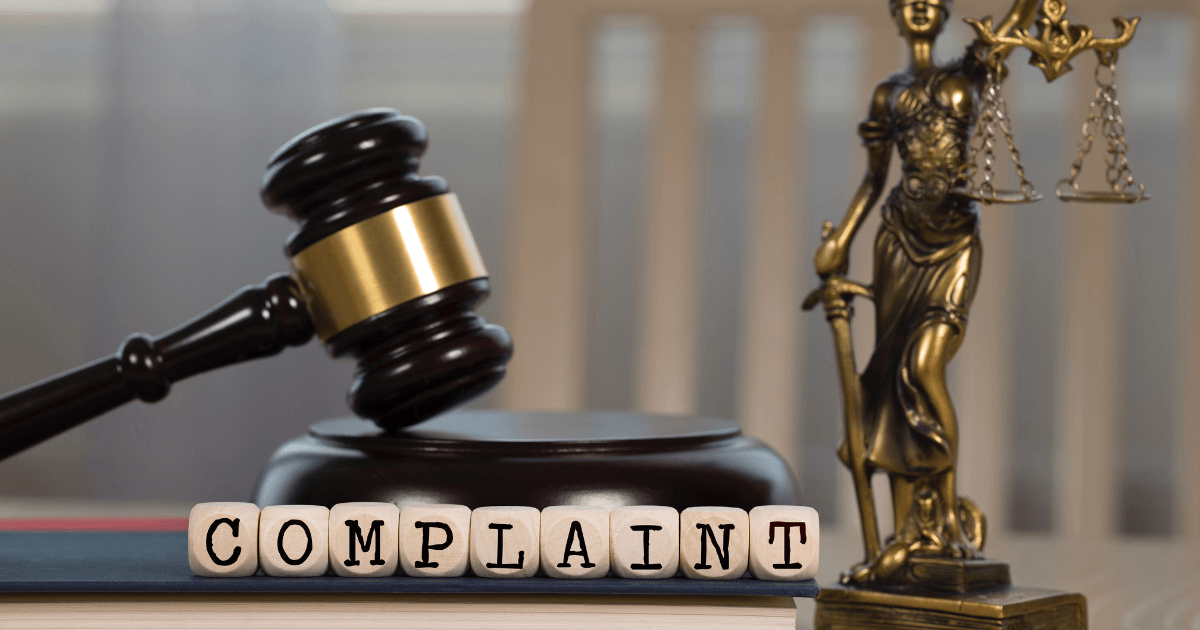If you’ve ever been sued in a civil action, then you’re probably aware of how a civil lawsuit works. However, if you’ve never experienced being on one side or the other of a civil lawsuit, then you might be wondering just how it works. What is a civil lawsuit? What is a civil complaint? What about a Complaint and Summons? And how does it all come together? Let’s start by explaining a civil lawsuit.
What is a Civil Lawsuit?
A civil lawsuit is a court-based process through which one person or entity (the plaintiff) can seek to hold another person or entity (the defendant) liable for some type of wrong, whether it’s negligence, product liability, professional malpractice, breach of contract, among many others.
Civil cases are started by a private party, such as a person or business, who believes they have been harmed by another party. The goal is to provide relief or compensation to the victim. Typically, civil lawsuits seek monetary compensation for the victim or a solution to end further harm through an injunction. This differs from a criminal case, in which a prosecutor acts on behalf of the government. In a criminal case the goal is to punish the wrongdoer with imprisonment or fines for breaking the law.
Lawsuits filed by Personal Injury Lawyers such as those stemming from car accidents, medical malpractice, or slip and fall incidents are one type of civil suit. Other common civil lawsuits include breach of contract, product liability, divorce and family law, property disputes, and housing disputes.
What is a Civil Complaint?
In order to begin a civil action, the plaintiff must file a complaint. A civil complaint is a legal document that initiates a lawsuit and informs the person being sued of the claims against them. It lays out the facts and reasons that support the plaintiff’s claim against the defendant. It also states the compensation or relief sought by the plaintiff and why they are entitled to it. The purpose of a civil complaint is to make the other party aware of the proceedings, so they can prepare and respond appropriately.
It is best to have a complaint prepared by a civil lawsuit attorney in order to guarantee it is done correctly. You don’t want your case to be dismissed because you filed it in the wrong court. You also don’t want to end up being the one sued or fined because you filed a complaint that lacks merit. If you do decide to prepare your own complaint, use resources such as your local law library to find examples of complaints to guide you.
How to File a Complaint and Summons
Once you or your civil lawsuit lawyer has prepared the complaint, it must be filed with the court to begin the civil action. When the plaintiff goes to file the complaint with the court clerk, he or she will pay a filing fee and have the court issue a summons for the complaint. A summons is a legal document notifying the defendant that a civil case has been filed against him or her. It identifies the basics – which court the case is in, the names of the parties involved, and the name of the attorney representing the plaintiff.
In many states, the civil action does not begin until the summons and complaint is “served” to the other party. This is where the infamous phrase, “you got served” originates. This is also why third parties are sometimes hired to deliver or serve papers. Who can serve a summons and complaint, and whether or not services such as certified mail can be used, are defined by the state. Be aware of your jurisdiction’s requirements for serving papers; they can be very specific. It’s also important to be aware of any time limits for serving papers after filing the complaint.
What Happens After Filing a Civil Lawsuit?
The defendant will have a certain amount of time to respond to a civil complaint. The defendant’s response should include anything the defendant admits to or contests, as well as any defenses the defendant wishes to assert. If the Defendant has any claims against the Plaintiff, these should also be included. If the defendant does not answer, a default judgement may be made against them.
Once a complaint is filed and responded to, it does not always go to trial. At this point, documents will be exchanged between parties. Complaints are often settled through mediation, arbitration and/or negotiated settlements. In many states, it is required that the parties involved go through at least some form of dispute resolution. If the parties are able to reach a settlement, then the court will be involved to a very limited extent, if at all. Judicial approval is only necessary in special circumstances or civil actions involving minors.
The process of a civil action can be fairly simple or intensely complicated. It may take months, or years to resolve. Be sure to speak with a civil lawsuit attorney if you are overwhelmed at any point during the proceedings of a civil action or before you begin one at all.
Content Updated: Originally published December 18, 2018

